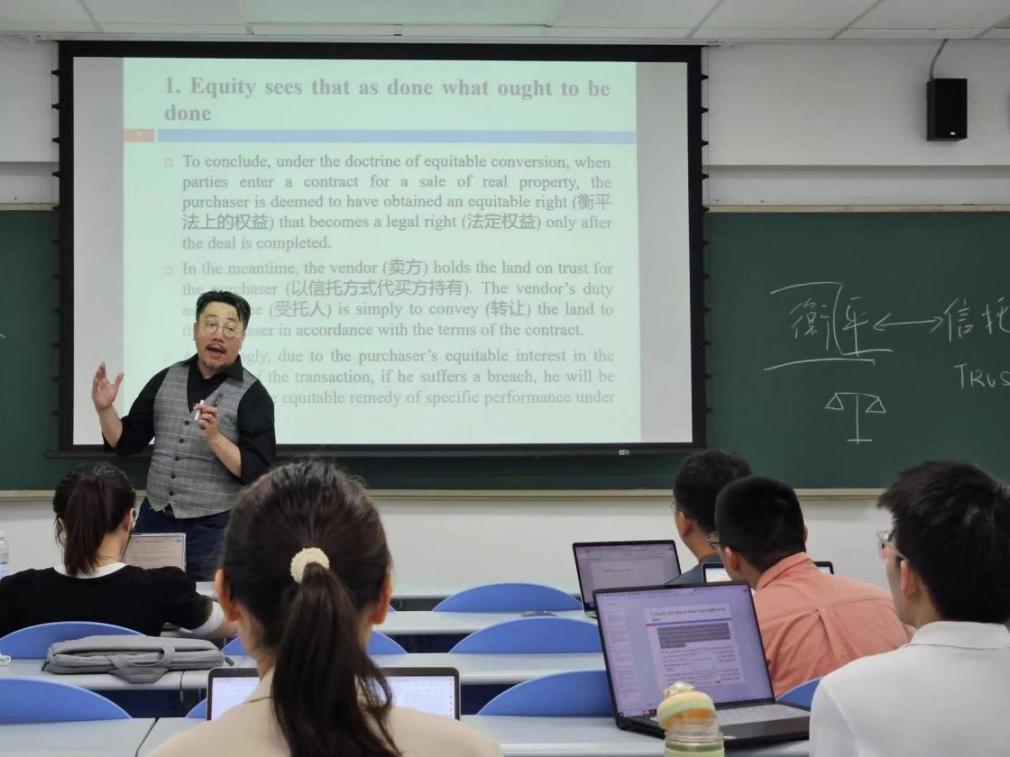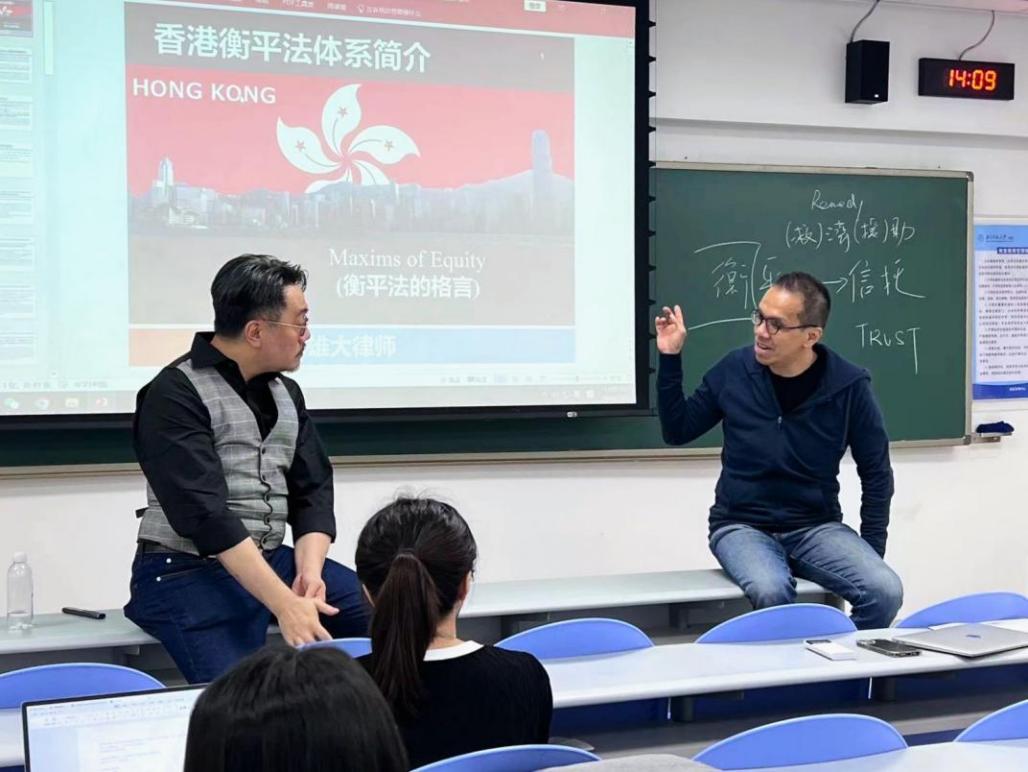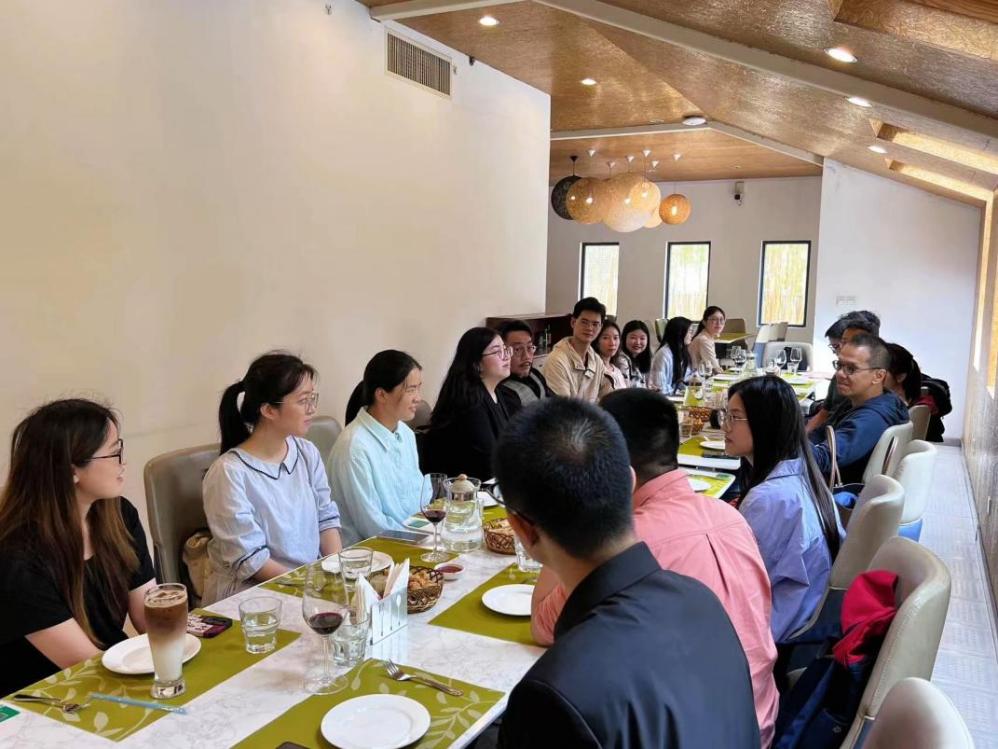
On March 27th, the first session of the Hong Kong Law Lecture Series was successfully held in a classroom of Lijiao Building of Beijing Normal University at Zhuhai. This lecture was delivered by Zhou Weixiong, a barrister in Hong Kong, hosted by Chair Professor Zhao Wenzong from the Law School of Beijing Normal University, and attended by undergraduate, graduate, and doctoral students from the Law School of Beijing Normal University.

Barrister Zhou Weixiong served as a government lawyer within the Department of Justice of the Hong Kong Special Administrative Region Government from 2000 to 2005. During this tenure, he adeptly managed land and urban planning disputes, as well as judicial review cases pertinent to the Hong Kong Special Administrative Region Government. In 2006, he was admitted to the Bar in the Hong Kong Special Administrative Region of China, and since then, he has been practicing independently. His practice is concentrated in litigation, with a specialization in areas including family law, land matters, succession, trusts, and mental health law.
At the beginning of the lecture, Barrister Zhou Weixiong elaborated on the Hong Kong equity system, general principles of equity, and typical cases with the topic of "Maxims of Equity". The law of equity, along with the Basic Law, common law, and written law, constitute the legal system of Hong Kong. Barrister Zhou Weixiong introduced that equity law emphasizes the principle of fairness, is more flexible than common law, and places more emphasis on considering the behavior and conscience of the parties involved. The biggest difference between common law and equity is that the remedies provided by the former originate from the rights that ordinary people should have, while the remedies provided by the latter originate from discretion. Common methods of equitable relief include injunctions or specific performance. Barrister Zhou Weixiong stated that when a party whose rights have been infringed cannot obtain relief under common law, equity will intervene and provide relief to the victim. The most typical use of equity for compensation is trust.

In the discussion segment, Professor Zhao Wenzong offered perceptive observations on the lecture. He contended that equity represents a distinct and integral component of Hong Kong's legal framework, serving a pivotal function in the city's judicial processes. Professor Zhao emphasized that law students ought to grasp the essence of equitable principles. He noted that should the court determine, upon evaluating the actions of the parties involved, that equitable relief is undeserved or inappropriate, it will refrain from granting such a decision. Building upon the case study presented, the students engaged in a thorough exchange with Barrister Zhou Weixiong and Professor Zhao Wenzong, delving into the practical application of equity law.

After the lecture, Barrister Zhou Weixiong and Professor Zhao Wenzong had a discussion and interaction with the students. The students shared their interests in Hong Kong law, while Barrister Zhou Weixiong shared his practical experience in handling land and urban planning, cross-border civil and commercial affairs, and marriage and family disputes, based on his rich practice experience. Subsequently, in response to the confusion during the teaching process, the students actively asked questions, and Barrister Zhou Weixiong patiently answered questions about the litigation procedures, age of criminal responsibility, and jury system in the Hong Kong legal system.

The symposium provided a valuable opportunity for students to gain insights into Hong Kong's legal practice through the expertise and experiences shared by the distinguished guests. The attendees conveyed that they had derived immense benefit from the event. To close the session, Professor Zhao Wenzong extended thanks to Barrister Zhou Weixiong on the students' behalf. The lecture concluded successfully, with the room echoing in appreciative applause.
